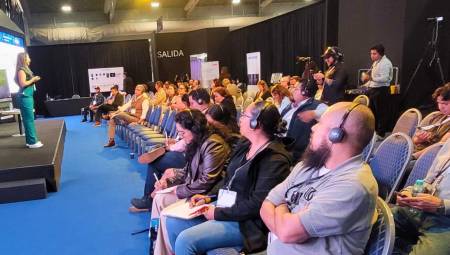 Mexico. Now more than ever, companies in Latin America are visualizing the importance of being prepared for the implementation of flexible labor policies such as teleworking or remote work. According to a study, Brazil is the flag country with more than 7 million teleworkers, followed by Mexico and Argentina with 2 million and Chile with about one million.
Mexico. Now more than ever, companies in Latin America are visualizing the importance of being prepared for the implementation of flexible labor policies such as teleworking or remote work. According to a study, Brazil is the flag country with more than 7 million teleworkers, followed by Mexico and Argentina with 2 million and Chile with about one million.
Undoubtedly, the number will continue to increase as organizations in all sectors see the competitive advantages of applying these schemes that allow them to work where and when it is required safely while providing employees with emotional salary to better balance personal and professional lives.
Keys to successfully implement flexible schemes
The reality is that there is still some reluctance on the part of some companies due to several factors such as organizational culture, the possible loss of security of critical data or decreased productivity. However, it is time to visualize the technologies of "Digital Workplaces" as real allies to overcome any challenge. These would be four pillars to take into account in enabling flexible policies:
- Have clear and efficient work guidelines and communication channels: Business leaders have to establish work priorities in their teams and foster channels to drive real collaboration among members.
- Work based on objectives and not by hours: It is important to provide full confidence to workers, regardless of the workplace, as well as in different ways of working to achieve the measurable goals determined by the manager or the company.
- Evaluate effective technological collaboration tools: This point is key. People require reliable, easy-to-use, and flexible communication options that accelerate information sharing and decision-making.
Fortunately, today there are solutions such as smart boards that allow a collaborative environment, where everyone can see, know and collaborate with each other in a dynamic and interactive way, without the need for a computer, tablet or mobile device. In this way it is possible to materialize your thoughts and ideas, in illustrations and phrases.
- Positive change management: from the management team to the managers and each and every one of the employees. Implementing a flexible work policy is a change of habit so that people work from where they feel they will get better results, instead of going to the office from Monday to Friday at regular times.
Maximizing the advantages of teleworking
With these four pillars defined, organizations will be able to maximize the benefits of teleworking or remote work in terms of productivity, such as conciliation and sustainability.
In particular, the increase in the conciliation and empowerment of employees to self-manage in their working time results in a greater well-being of them, which leads to an increase in commitment to the company. On the other hand, by making fewer trips, CO2 emissions per employee are lowered and the company saves on fuel.
Text written by Marcelo Szabo, Solutions Manager Visual Communications - Digital Signage - Emerging Technologies de Ricoh Latin America.









































































































